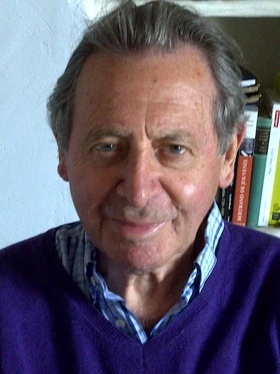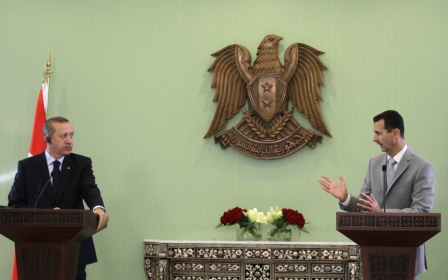Syria expert Patrick Seale dies at 83

British journalist Patrick Seale, a veteran Middle East historian and expert on Syria, has died of brain cancer, his former newspaper The Observer reported. He was 83.
The broadcaster and writer was best known for a series of books on Syria that were widely respected, although critics said he was too supportive of the Assad regime.
Seale was diagnosed with the illness last June, said the Observer, the British Sunday paper for which he was once the Beirut correspondent. When he began with The Observer, he replaced his friend Kim Philby, the British MI6 spy who defected to Soviet Union in 1963.
Seale's books on Syria included Assad:The Struggle for the Middle East, a biography on Syria's late dictator Hafez al-Assad, the father of current ruler Bashar. His trilogy also included The Struggle for Syria and The Struggle for Arab Independence.
Following the outbreak of the 2011 uprising against Assad's rule, Seale advocated a place for the Assad regime, Iran and Russia at any peace talks on Syria, the paper said.
New MEE newsletter: Jerusalem Dispatch
Sign up to get the latest insights and analysis on Israel-Palestine, alongside Turkey Unpacked and other MEE newsletters
Journalist Tim Llewellyn wrote in his Observer obituary that "Seale's familiarity with Syria and its leaders engendered much criticism of him, and suspicion that he was an apologist, mostly from people who were parti pris themselves, especially the Lebanese establishment, or those who chose to confuse explanation with exoneration."
There were tributes from many in the region.
The British ambassador to Lebanon, Tom Fletcher, paid tribute on Twitter saying Seale was a "wise, curious, mischievous lion of Levant history."
"Patrick Seale knew the Middle East inside out. But his wisdom was that he also knew how much he didn't know, and was furiously curious," Fletcher wrote on Twitter.
Walid Jumblatt, leader of Lebanon's Progressive Social Party, recounted his last meeting with Seale in the summer of 2011 on the Atlantic Council blog. In what would turn out to be their last meeting, the two friends argued about Bashar Assad.
"He thought at one time, as I did, that Bashar would implement reforms. We were both wrong," Jumblatt wrote. "Now that Syria is being systematically destroyed by the regime and by innumerable groups of rebels, now that Syria is a battleground for regional and international powers, and now that the Syrian people are suffering unspeakable hardships, I would say it is a relief for Patrick to have departed this life, at this moment. He no longer has to witness the agony of Syria and its ultimate destruction."
Seale was born in Belfast, Northern Ireland, in 1930 to a British Arabist and theologian father, Morris S Seale, and a Tunisian-Italian midwife mother.
Shortly after his birth, the family moved to Syria where they were missionaries, and his time growing up in the region fuelled a life-long fascination.
Seale spent most of his first 14 years in Syria, attending school in Damascus, before moving to England and later attending Oxford University where he was mentored by his teacher, the historian Albert Hourani. He then moved to Beirut where he started freelancing.
Seale took over the Observer post from Philby after the spy's defection to the KGB, though the newspaper said he did not have any involvement with the MI6 himself. He later wrote a book about Philby.
Seale married twice: the writer Lamorna Heath in 1971, the mother of Orlando and Delilahwho, who died in 1978; and the writer and broadcaster Rana Kabbani, the mother of Alexander and Jasmine, from whom he was separated. Seale's funeral is scheduled to be held next week in London, according to a family member.
Middle East Eye delivers independent and unrivalled coverage and analysis of the Middle East, North Africa and beyond. To learn more about republishing this content and the associated fees, please fill out this form. More about MEE can be found here.


